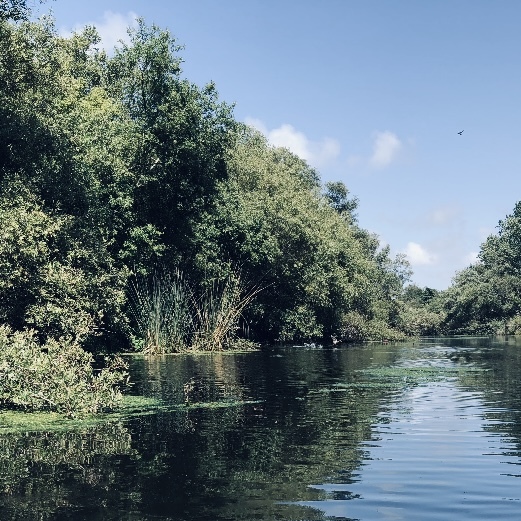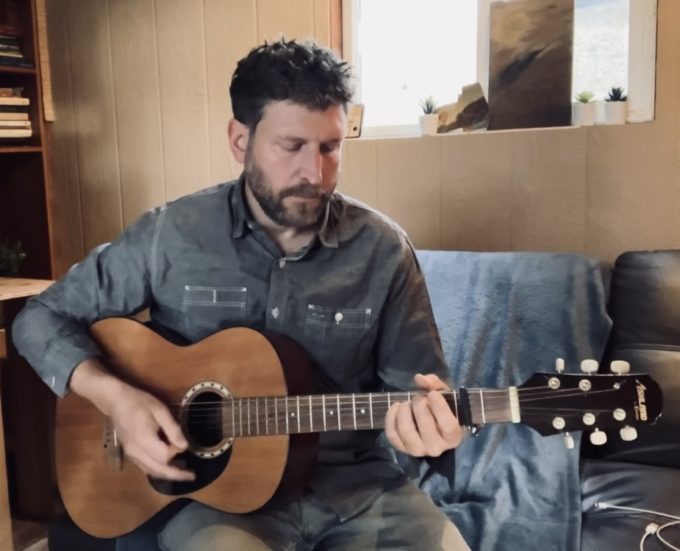
Drifters on the River
Imagine a river wide and shallow and slow, flowing in the heat beneath a burning sun. In the center of the river is a deeper channel. Anything floating here will be carried inexorably towards its goal – a destination somewhere downstream.
But further from the central channel more frequent obstacles are encountered on the path. Sandbars, stumps of dead trees, sharp rocks, even vicious jags of metal from discarded bedframes and washing machines, or whatever, project menacingly from the depths.
On the banks of the river savage predators lurk. Great peril of violent death shadows those who pass too close.
Drifters on the River
Now, imagine that the river is packed with blind humans floating on inner tubes. At all times we are oriented downstream. (Maybe there is a tiny drogue fixed to the back of each innertube, I don’t know). We are deeply aware of the experiences of those we can sense in our immediate surroundings.
However, there is also a great deal of commotion. There are sounds all around us. Small cries of joy come from those nearby but perhaps a bit closer to the central pass as they clear their obstacles; quiet groans of frustration from those who are tangled with snags. There are great raucous whoops of triumph and exhilaration from those traveling the central path of the river. And there is an abundance of pained moans from those injured to varying degrees by the more fearsome obstacles further from the central current.
And sadly, many who suffer on their paths flail violently and lash out at others with the very shards that pierce them, causing great injury and even death. The shrieks of agony from the victims of assault mingle with the wails of those who fall prey to the predators lurking on the banks.
To some degree we can orient our ears to focus more on the signals coming from either side – the clamor of joy or the cries of despair. Most prefer to tune out the sounds of suffering as much as possible. Some are captivated by them and instead focus all their attention there. A few others, through their natural temperament combined with the input received on their paths, are fixated on creating a clear picture of this world they inhabit. These try their best to listen equally to sounds from all sides.
Navigatory Illusions
We who drift upon the river have a miniscule capacity to propel ourselves – we can splash our hands in the water. We can splash a little or thrash a great deal. It just depends on how we feel and our impression of the nature, presence, or absence of the barriers in our path. Most put in a strong and steady paddling.
In truth, the overall effect of our efforts on our forward progress is more or less the same. Those who devote more energy to splashing may get some pleasurable cooling effect that makes them more comfortable. But all have their own unique, finite allotment of focus and energy available to them. The ones who invest most of their energy into paddling have less to apply toward other activities available to them, or to their relationships with their fellows.
Some try to splash closer to the center of the stream to join those who travel the central channel. Others attempt to paddle towards those crying on the outside to offer support and solidarity. But the stream is jammed with the multitude attempting their own maneuvers. A few, mostly those closest to their objective, manage to attain the position they seek on the path.
Nevertheless, we drifters on the river are convinced that our passage downstream is the result of our own efforts.
This is an uncommon perspective shared by few. For us, the epiphany is this – None of us choose where we are placed upon the river, for that is the will of the gods.
[Special thanks to Ekaterina for her post! It prompted development of a very fuzzy concept drifting on the edge of consciousness :-)]
The Daily Stone




